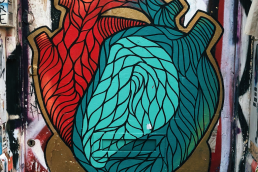Illustrations by Ida Henrich
It’s been a busy few weeks for Fearless Femme’s research team as we’ve settled into the first rounds of our mental health research. You can read more about the background to our plans in our first blog, but for now, here’s our some highlights from the past four weeks’ worth of findings.
Social Media
Building on the strands of engagement we put in place at the beginning of our research plan, we’ve continued to engage readers and contributors with our research by using social media, and through regular surveys and polls. The online interest has been increasing steadily since we first began, and it’s been good to see more interaction, comments and feedback coming in under #TellFearlessFemme. We’ve made a little infographic of our Instagram polls’ findings which you can see on the right.
We’re especially concerned to see that 94% of respondents on Instagram said that their school/uni doesn’t give adequate mental health support during exams, and so we’ve been working to identify the ways in which institutions can better support their students as they face examinations.
Our Twitter polls investigated this theme in a bit more detail. Interestingly, 45% of respondents to a poll about mental health during exam time said that “less fearful rhetoric” would be the most helpful thing to manage the pressures faced during this time. This was reflected on a larger scale in an Instagram poll where 81% of respondents said that the exam rhetoric at school or uni has a negative effect on their mental health. 38% on Twitter believed this rhetoric came from people’s fear of the future.
The beginnings of our Twitter research on post-education wellbeing showed that 66% of respondents believe that supportive management in the workplace is the most important thing to support mental wellbeing in a transition to the workplace (also highlighted was the importance of paying interns to alleviate financial stress for students and recent graduates).
Survey results
In the past month we have carried out four surveys, which are gathering in-depth data on the mental health of young women and non-binary people. In particular, the use of open-form boxes for written responses has given us interesting insights and detailed suggestions from participants. The surveys are taking two strands; one designed for Fearless Femme contributors and one for our readers. This way, we hope to tailor the magazine to best suit everyone’s needs, as well as investigating their mental health.
Results from our contributors’ surveys showed that 88% have struggled with their mental health (52% struggle regularly and 36% struggle sometimes). See some further stats – concerning both readers and contributors – in the graphs included below.
Life After Education
We’ve now also begun looking into post-education wellbeing. We’ve found that most of our readers are between the age of 18 and 35, and have largely left education.
We’ve been hypothesizing that an often overlooked and at-risk demographic for mental health problems is recent graduates, and judging from the feedback we’ve been getting online, this feeling is reflected by the Fearless Femme community. Accordingly, our current survey examines post education/graduate well-being and you can take it by clicking here.






